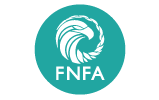
First Nations wishing to operate property tax regimes, obtain financial performance and financial management certification, or access a bond financing regime under the FMA, first require to be added to the FMA Schedule* .
All bands (as defined in the Indian Act) are eligible to be added to the FMA schedule of participating First Nations.
Once a First Nation has opted in and is added to the FMA schedule – through a Band Council Resolution – they have access to all of the FMA fiscal powers, and to the wide range of services offered by the fiscal institutions.
If you are considering opting in to the FMA:

Contact the FNTC to discuss the process: Email FNTC Toll Free: 1-855-682-3682

Consider arranging for a presentation to Chief and Council and senior staff
If you’ve decided to proceed:

Download the Sample BCR (below) Requesting to be Added to the FMA Schedule

Develop a work plan in conjunction with FNTC
When a First Nation opts into the FMA, effective communication ensures that members, residents and taxpayers are aware of the system, its economic and service opportunities, and the responsibilities of the First Nation. A fundamental aspect of all tax systems is giving fair and adequate notice to those whose interests are at stake. At every critical step in the First Nation tax system there are notice provisions aimed at different stakeholders. Below are the standards and guidelines related to providing notice.
Once a First Nation has been added to the FMA schedule, they can begin working with any or all of the First Nations institutions established under the FMA:
The First Nations Institutions work together to improve the ability of First Nations governments to address the social and economic well-being of their communities, while providing the practical tools available to other governments for modern fiscal management.



To establish tax jurisdiction on reserve, First Nations first enact a Property Taxation and Property Assessment Law. To maintain their taxation system, they must pass an Annual Tax Rates Law and an Annual Expenditure Law. Most Nations then consider building on that established framework with additional local revenue laws such as a Development Cost Charge Law, a Property Transfer Tax Law, a Business Activity Tax Law, and a Service Fee/Taxes Law.
Guide to Development & Administration of Real Property Taxation Laws
Guide for Taxation Tools to Promote Infrastructure Development
Taxation Guides for Business Activities & Services on Reserve Lands
Sample laws & standards for laws enacted under the First Nations Fiscal Management Act (FMA)
In order to access the FMA, the Chief and Council of an interested First Nation must send a Band Council Resolution (BCR), to the attention of the Minister of Crown-Indigenous Relations, requesting to be added to the Schedule. The resolution (see FNTC Sample BCR) can be mailed to:
Minister of Crown-Indigenous Relations
21st Floor, 10 Wellington Street
Gatineau, Quebec
K1A 0H4
Once this request is made, the First Nations Tax Commission will work with the interested First Nation in developing its property tax laws.
Can First Nations with Treaties or Self-Government Agreements collect property tax? fntc-gl1 2020-05-18T18:43:01-07:00
Can First Nations with Treaties or Self-Government Agreements collect property tax?First Nations that have Treaties or self-government agreements, and are operating outside the Indian Act, can, if they wish, come under the First Nations Fiscal Management Act ( see section 141 of the FMA). This can be done through the development of regulations which can adapt the provisions of the FMA as required for this purpose.
First Nations that are not Indian Act bands may begin the process by providing a resolution from their governing body to the Minister of Crown-Indigenous Relations.
Minister of Crown-Indigenous Relations
21st Floor, 10 Wellington Street
Gatineau, Quebec
K1A 0H4
What is the difference between s. 83 taxation under the Indian Act and taxation under the FMA? fntc-gl1 2020-04-23T19:26:02-07:00
What is the difference between s. 83 taxation under the Indian Act and taxation under the FMA?s. 83 of the Indian Act provides First Nations with by-law making authority for real property taxation on reserve. First Nations exercising taxation under s. 83 must pass the following by-laws: Real Property Taxation By-law, Property Assessment By-law, Expenditure By-law, and an Annual Rates By-law. All by-laws are subject to Ministerial approval.
The FMA provides First Nations with law making authority for real property taxation on First Nation lands. First Nations that wish to exercise real property taxation under the FMA must first request to be added to the FMA schedule. Once added, First Nations can pass local revenue laws for the purposes of taxation, assessment, rate setting, expenditures, and debenture financing. All laws are subject to the review and approval of the First Nations Tax Commission.
Taxation under the FMA has added benefits. These include:
FMA is federal First Nation-led legislation, which came into force on April 1, 2006. The FMA expands local revenue jurisdiction, provides financial management certification and expertise, and provides access to debenture financing.
As an alternative to s. 83 of the Indian Act, the FMA provides a comprehensive regulatory framework to support First Nation economic growth.
What training is available for tax administrators? fntc-gl1 2020-04-24T17:39:22-07:00 What training is available for tax administrators?The FNTC, the Tulo Centre of Indigenous Economics, and Thompson Rivers University have developed an accredited certificate program in First Nation Tax Administration.
The Certificate in First Nation Tax Administration is intended to help First Nations implement these new powers and develop the skill set for First Nation tax administration using the FMA. This certificate assists those wanting to learn more about First Nation tax administration or those working under s. 83 of the Indian Act.
For more information about the Tulo Centre and the training it offers, visit the Tulo Centre website
Is there professional support available? fntc-gl1 2020-03-07T22:00:16-08:00 Is there professional support available?The First Nations Tax Administrators Association was formed in 1993, and provides a wide-range of support to First Nation Tax Administrators.
Membership is open to employees of any First Nation who are interested or engaged in the development, implementation or administration of a program, or department of taxation or revenue generation on behalf of a First Nation.
How do First Nations transfer from s. 83 taxation to taxation under the FMA? fntc-gl1 2021-01-20T11:18:59-08:00
How do First Nations transfer from s. 83 taxation to taxation under the FMA?In order to transition to the FMA from s. 83, you must first pass a Band Council Resolution (BCR) to be added to the schedule of the FMA.
Your existing s. 83 by-laws remain in force, to the extent they are not inconsistent with the FMA, until you develop new laws.
How do First Nations borrow under the FMA using local revenue? fntc-gl1 2020-05-07T22:57:42-07:00 How do First Nations borrow under the FMA using local revenue?As with other jurisdictions collecting property tax, First Nations now have the ability to use their local revenues to access long term debt financing.
Under the Fiscal Management Act (FMA), First Nation governments can participate in the debenture financing system, and borrow money based on the certainty of collecting property tax each year.
To begin borrowing with local revenues under the FMA, First Nations must satisfy several prerequisites. Briefly, First Nations must have:
First Nations opting to use their property tax revenues to obtain long term capital financing through the provisions of the FMA may do so through a FNTC approved borrowing law made under section 5(1)(d) of the FMA. The FNTC has developed a sample borrowing law, and a sample borrowing agreement law. A key element of the borrowing law is the project plan. The project plan summarizes the capital project, its financing, fiscal impact, and registered professional certification.
Debt servicing will be based on a percentage of annual property tax revenue. The percentage will depend on the composition of the tax base, security of leasing arrangements, expenditure obligations, and other factors.
Are there any other types of taxes beyond property taxation? fntc-gl1 2020-05-08T16:23:38-07:00 Are there any other types of taxes beyond property taxation?Provision of Services: Taxes for the provision of services are imposed on a specific area within a First Nation to fund the service or improvement applied to a particular area only.
The taxes are generally applied to parcels of land. This means that the owner of the parcel of land is responsible for paying the services tax. A services tax is allocated as an annual charge that may be levied for a set number of years depending on the law.
Types of local services include:
The cost of work undertaken as a provision of services is paid up front by the First Nation then recovered from property owners within the service area using the tax. The tax may be based on a single amount for each unit or the taxable frontage of the parcel. In some instances, owners can pay the amount in one lump sum, and avoid interest charges. Typically, First Nations will contribute a portion of the cost from the local revenue generated through the First Nation’s property tax law.
Property Transfer Taxes: Property transfer tax (PTT) is a tax on real property transferred (typically a lease) paid by the purchaser of real property, and is based on the fair market value of the property being transferred.
The PTT law sets out when and how the tax will be levied, the rate of tax, any exemptions from the tax, and includes provisions respecting the rights of appeal, the application of penalties and interest to unpaid taxes, and enforcement and collection mechanisms available to First Nations. A critical element in the operation of the PTT is First Nation control over land registry, therefore participation in the First Nations Lands Management Act is strongly recommended.
The FNTC has developed standards for PTT laws based on best practices, while allowing for local variation where appropriate and supporting harmonization with provincial jurisdictions where appropriate. First Nations have discretion in setting their rate of PTT; however, their rate cannot exceed the adjacent provincial rate for PTT. If there is no PTT in their adjacent province, First Nations may choose any other province to follow for rates and exemptions.
Development Cost Charges: Development Cost Charges (DCC) are taxes collected from developers of reserve land to pay the capital costs of servicing the development with transportation (roads), water/sewer/storm-water drainage, and providing park and recreation lands and facilities. DCCs must be collected under the authority of a DCC law.